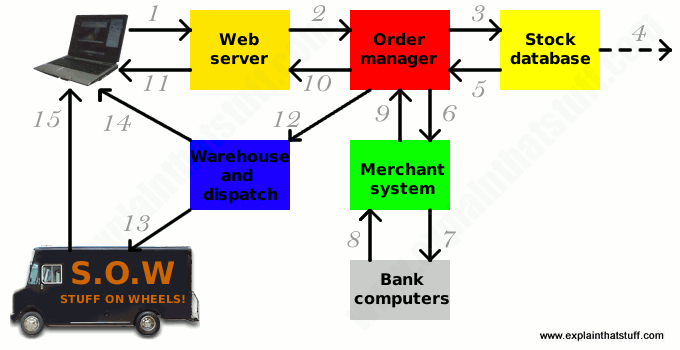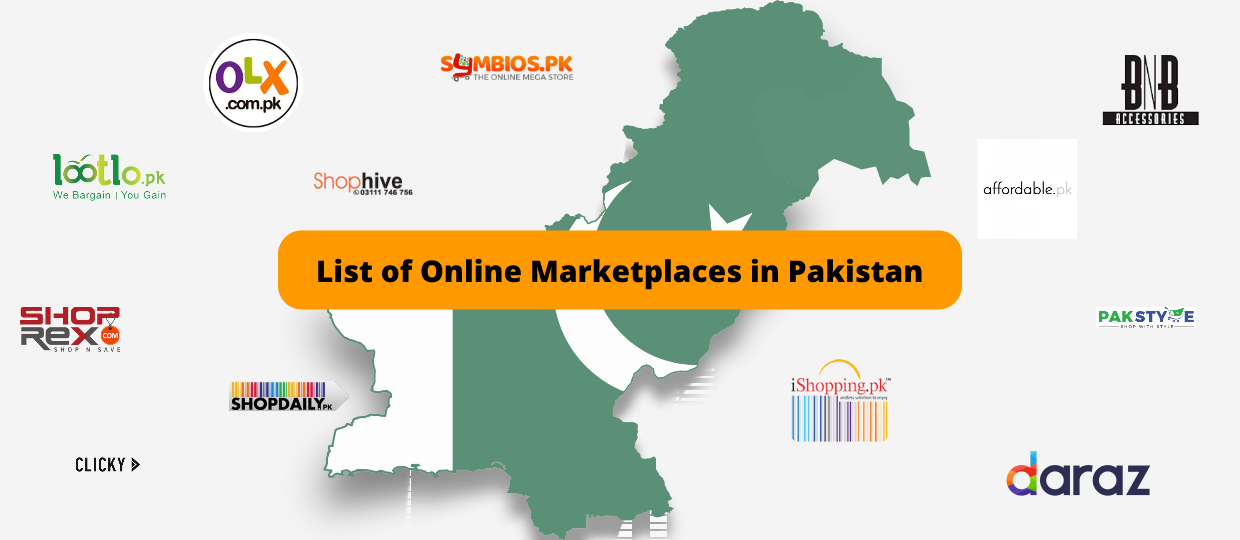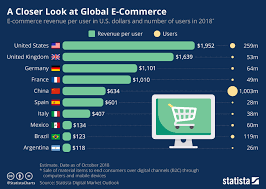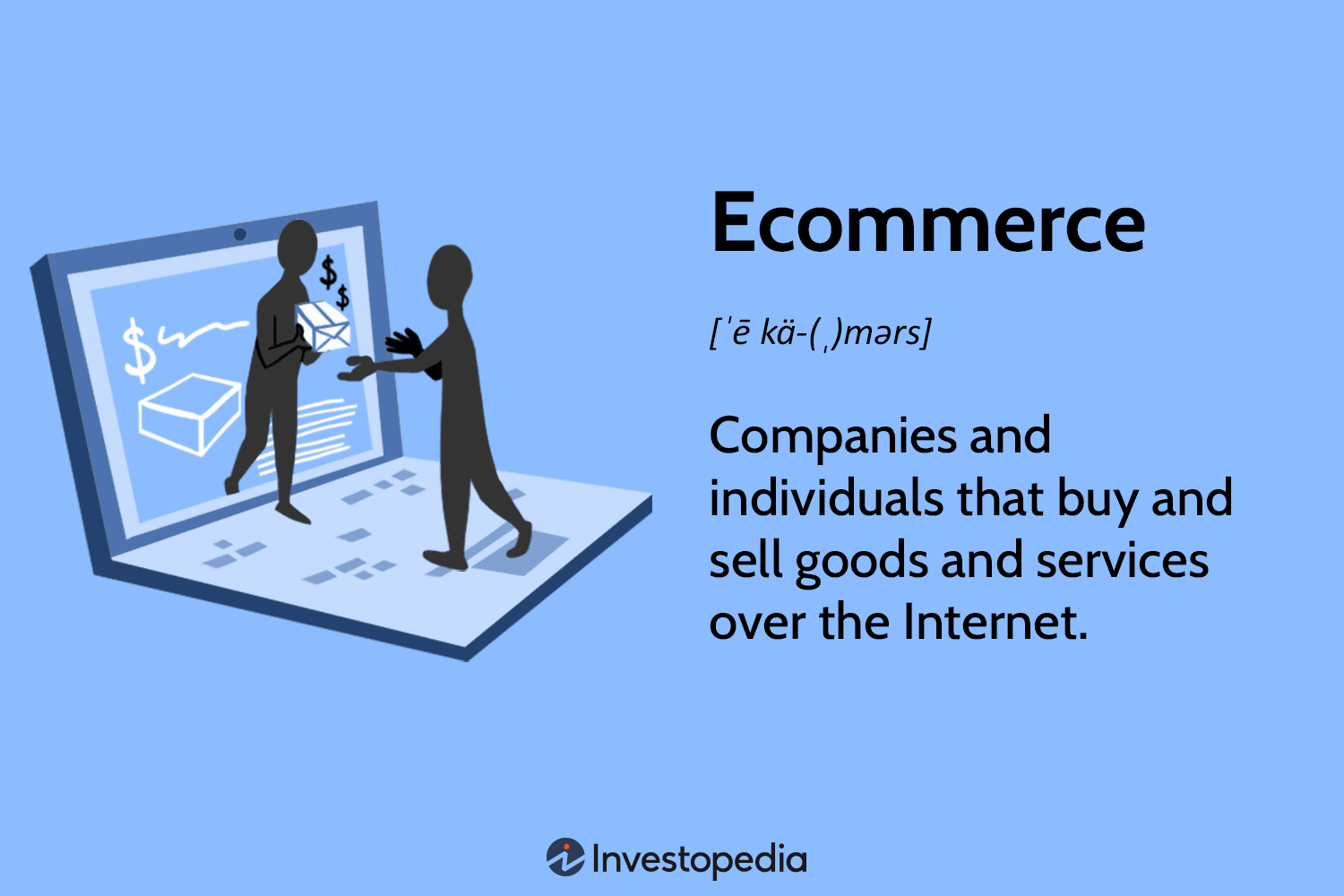what is e-commerce?
E-commerce,(online business) often known as electronic commerce, is the exchange of goods and services as well as the sending of money and data through an electronic network, most commonly the internet. These business dealings can be either B2B (business-to-business), B2C (business-to-consumer), C2C (consumer-to-consumer), or C2B.
How does e-commerace work?
The internet is what drives e-commerce. Customers use their own devices to access an online store to browse the selection and place orders for goods or services.
The customer's web browser will communicate back and forth with the server hosting the e-commerce website as the order is placed. The order manager, a central computer, will receive information about the order. It will then be sent to databases that control inventory levels, a merchant system that controls payment data using tools like PayPal, a bank computer, and a merchant system.Finally, it will circle back to the order manager. This is done to ensure that there is enough stock in the store and money in the customer's account to fulfil the order.
The order manager will alert the store's web server once the order has been confirmed. The customer will see a notice stating that their order has been successfully handled. The order manager will then notify the warehouse or fulfilment department that the goods or service can be delivered to the customer by sending order data to those departments. A customer may receive actual or digital goods at this moment, or access to a service may be granted.

Online marketplaces where vendors register, like Amazon, are examples of platforms that host e-commerce transactions.
E-Commerce Growth in Pakistan

According to a report by the State Bank of Pakistan, the country's e-commerce industry has witnessed a 92% increase in online transactions during the first half of 2021 compared to the same period last year. This growth trend is expected to continue, with the market projected to reach a value of $3 billion by 2023.
E-Commerce Growth in COVID-19

One of the key factors driving the growth of e-commerce in Pakistan is the rising middle class, which has led to an increase in disposable income and a shift towards a more consumerist lifestyle. Additionally, the COVID-19 pandemic has further accelerated the adoption of e-commerce as more people turned to online shopping due to restrictions on physical shopping.
The e-commerce industry in Pakistan is diverse, catering to a wide range of product categories, from fashion and electronics to groceries and household items. Major e-commerce players in the country include Daraz, Yayvo, and Telemart, while smaller players are also emerging in niche markets.
Daraz, owned by Alibaba Group, is the largest e-commerce platform in Pakistan with a presence in over five countries. It offers a wide range of products, including electronics, fashion, beauty, and home appliances, among others. Yayvo, owned by TCS, is another major player in the market, offering a similar range of products to Daraz.
In addition to these larger players, there are also niche e-commerce sites that cater to specific markets. For instance, Symbios.pk is a popular online electronics store, while Shophive.com specialises in luxury items such as designer watches and jewellery.
While the e-commerce industry in Pakistan is growing rapidly, there are still challenges that need to be addressed. One of the major challenges is the lack of proper infrastructure, including logistics and payment systems. However, efforts are being made to improve the infrastructure, with the government announcing several initiatives to support e-commerce growth in the country.

In recent years, the government has launched various digital initiatives to promote e-commerce in the country. For example, the National e-Commerce Policy was introduced in 2019 to create a favourable environment for the industry. The policy aims to provide incentives to businesses to go digital and simplify the process for consumers to purchase goods and services online.


Another important development in the e-commerce space in Pakistan is the rise of digital payment solutions. While cash on delivery (COD) has been the preferred payment method for most consumers, the COVID-19 pandemic has accelerated the adoption of digital payments. Several digital payment solutions, such as JazzCash and Easypaisa, have emerged in recent years, providing consumers with easy and secure payment options.
In conclusion, the e-commerce industry in Pakistan is witnessing rapid growth, driven by a rising middle class, the COVID-19 pandemic, and the availability of affordable digital payment solutions. While there are challenges that need to be addressed, efforts are being made to improve the infrastructure and create a favourable environment for the industry. With the government's support and the increasing adoption of digital technologies, the e-commerce industry in Pakistan is poised for significant growth in the years to come.



You must be logged in to post a comment.